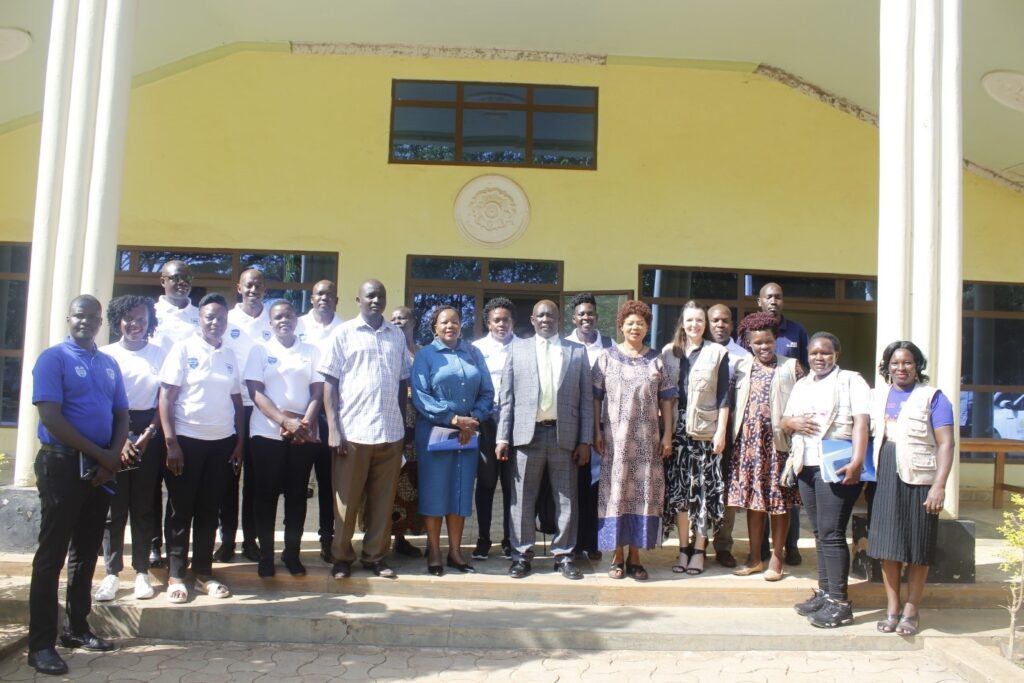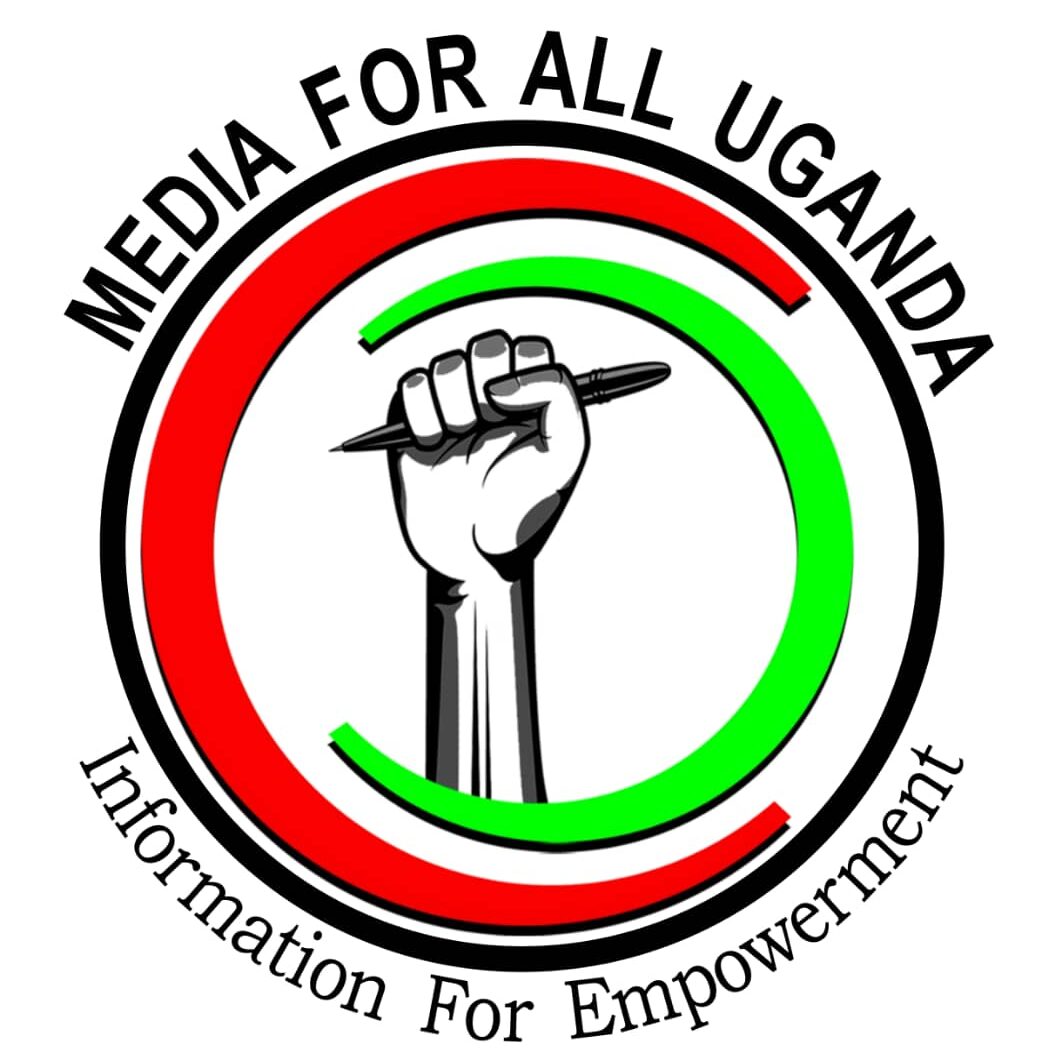UN WOMEN, STANBIC BANK PARTNER TO STRENGTHEN FINANCIAL INCLUSION FOR REFUGEE WOMEN IN ADJUMANI.
By Doreen Bazio—Adjumani District.
UN Women and Stanbic bank, Uganda, have partnered to advance the digitization of Village Savings and Loans Associations (VSLAs), promote financial literacy, and improve access to critical services for refugee women and the host community in Dzaipi Sub County, Adjumani District.
At an event that took place at the Women’s Center in Nyumanzi Settlement on April 29th, 2025, the duo donated 35 smartphones and 1,250 fruit tree seedlings (jackfruit, mango, and avocado) to VSLAs, 334 mama kits to Nyumanzi HC II, and 133 reusable sanitary pads to girls and young women between 15 and 35 years old.
UN Women, with support from the Government of Norway and in partnership with Oxfam Uganda, Whitaker Peace and Development Initiative (WPDI), Refugee Law Project (RLP), and the Coalition on Action for 1325, is implementing the Leadership, Empowerment, Access, and Protection (LEAPII) project (2022-2025) across Adjumani, Yumbe, Kyegegwa, and Terego districts. In Adjumani, 2,990 beneficiaries are being targeted.
Testimony.
According to Rose Chandia, a beneficiary and member of Amesutakuru Savings Group, they received training in financial literacy, and this has shaped how they allocate and manage resources within their households. She also observes that this has since boosted the confidence and self-esteem of many women in the community because they feel their contribution is acknowledged and respected.
“I was able to take my son to secondary school after he completed primary seven. This made my husband start listening to my advice and taking my ideas seriously. We are now engaged in commercial farming, and our family income has since increased,” Rose said while expressing gratitude during the event.
The Amesutakuru Saving Group, based in Nyumanzi Settlement, is one of the 35 groups that received financial literacy training from WPDI. The groups save on a weekly basis for the host communities and on a monthly basis for the refugees. Their cumulative savings as of March 2025 stand at shs 213,400,000/=, loans stand at shs 181,100,000/=, and cumulative social funds are shs 30,430,000/=. The average loan per group stands at shs 5,174,200/=. The loans are picked and utilized for petty businesses, paying school fees, and attending to health-related matters. Additionally, 25 groups also received small business grants totaling shs 62,500,000/=. These collect revenue of between shs 800,000/= and shs 6,000,000/=.
Stakeholders speak out.
Speaking in affirmation, Dr. Catherine Poran, the Chief Executive Officer of the Stanbic Business Incubator, said the bank has purposed to drive the growth of the economy by improving access to affordable credit, strengthening financial inclusion, and addressing barriers to financial empowerment for marginalized communities like the refugees through their corporate social responsibility role. She also encouraged the beneficiaries to not only plant but also grow the fruit trees as a source of income in the future.
“We are not just a financial institution, but we also provide social services by being intentional about contributing towards addressing challenges that hinder economic empowerment for the people we serve,” Dr. Poran explained.
On why this partnership is key, Dr. Paulina Chiwangu, the UN Women Uganda Country Representative, said that digital and financial inclusion for refugee women is key because very few of them have access to smartphones/digital devices, and yet this acts as a hindrance to economic growth in a fast-paced technology environment where everything is now digital.
“Only about 16.9 million women in Uganda have access to a smartphone. Uganda’s digital gender gap is more pronounced in rural areas and marginalized communities like those of refugees. I was once a refugee in South Sudan, so I know what empowerment means for you,” Dr. Chiwangu observed.

On his part, Hon. Kaijuka Richard Arthur, the District Vice Chairperson, thanked UN Women for the support and continued collaboration over the years. He thanked UN Women for contributing to peaceful co-existence between refugees and host communities by initiating contributions that conserve the environment, as large parts of it are depleted by the refugees for firewood.
“Adjumani is extremely hot partly because of how we continue to deplete the environment. Planting the trees is a good idea, but sustainability is also key. I urge you to continue supporting the beneficiaries to grow the trees,” Hon. Kaijuka advised.
However, Mr. Jogo Titus, the Refugee Desk Officer in the Office of the Prime Minister Pakelle, said that Nyumanzi Settlement has a good reputation for sustaining interventions and was thus optimistic that they would do the same with the donations. He added that there was, however, a need for more support because the district receives refugees on a daily basis, and yet, on the other hand, the World Food Program hasn’t only reduced its monthly cash assistance from shs 14,000/= to shs 10,000/= per individual but also only gives food and not trees. He also requested for the support to be extended to the other 19 settlements.
About the project.
Since 2022, UN Women and WPDI have reached out to 2,830 beneficiaries, with 2,500 of them women. The LEAP II project has 4 components: Gender Action Learning System (441 beneficiaries), Climate Smart Agriculture (389 beneficiaries, 70 acres of commercial orchids), Business support (829 beneficiaries), and VSLAs (1,171 beneficiaries). The LEAP project aims to strengthen gender-responsive humanitarian programming, enhance women’s leadership and protection, and promote sustainable livelihoods for refugee and host community women and girls. Earlier this year (2025), UN Women and Stanbic bank, Uganda, signed a 2-year Memorandum of Understanding to extend the #StanbicForHer initiative, a corporate social responsibility campaign by the bank, to 4 refugee camps, including Adjumani.
91% of refugee families in Uganda are very susceptible economically, with West Nile refugees having the greatest degree of vulnerability (96%) as compared to those in the Southwest (84%). This is mainly because relief assistance is the primary source of income for around 54% of the refugee families. However, now refugees are able to participate in economic activities, and this percentage has since decreased to 37%, according to Oxfam Uganda.
END.
